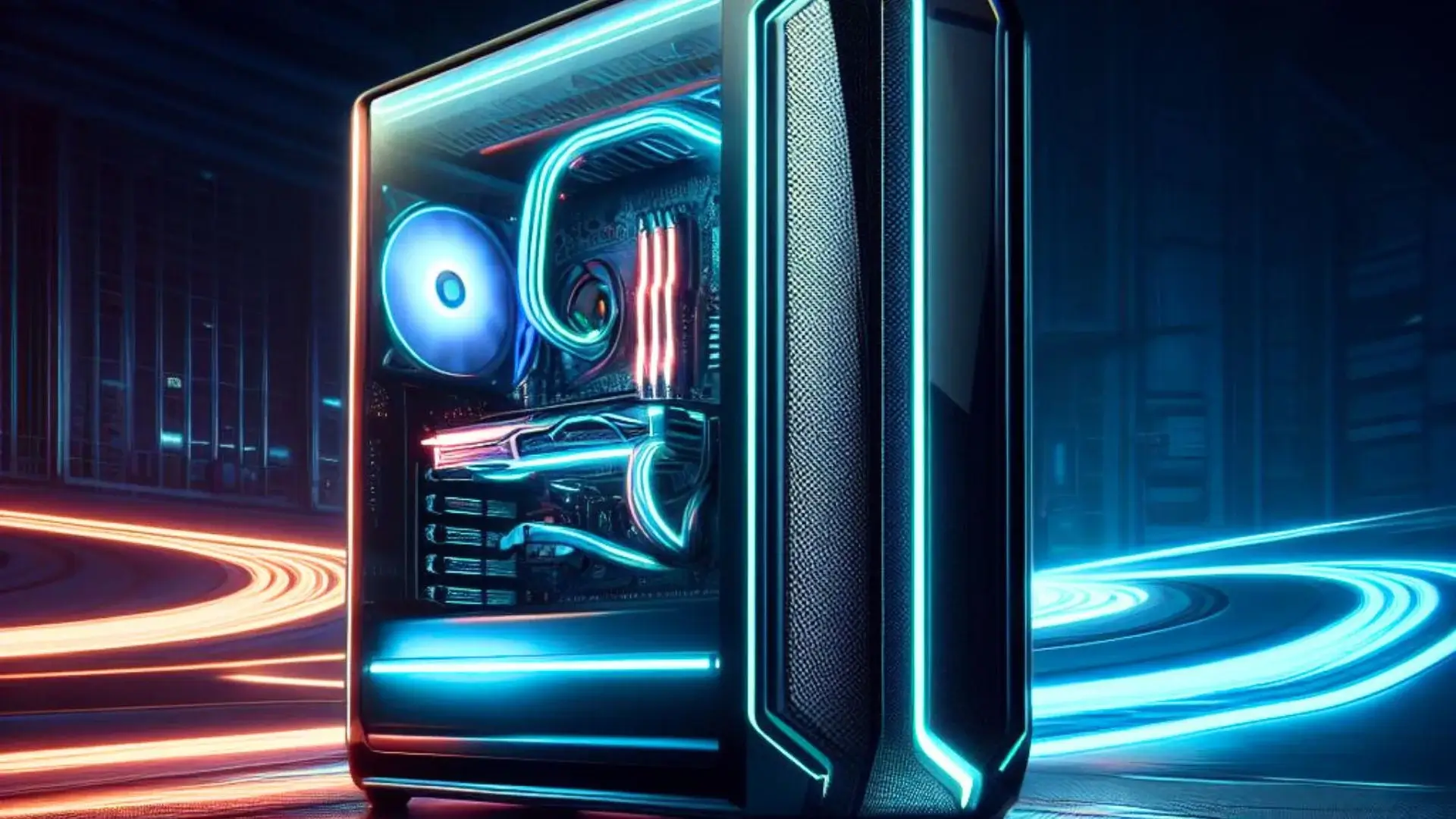Today, I will give you facts about the Overclocking guide from 0 to 100, including the purpose of overclocking, a rundown of the components you can overclock, the ways you can check if your systems are overclocked, what you should know before starting the process, the disadvantages of overclocking, and, most importantly, we will teach you how to overclock your CPU, graphics card, and RAM.
So, share this writing with your PC Gamer friends! (Spread learning_)
The Purpose of Overclocking
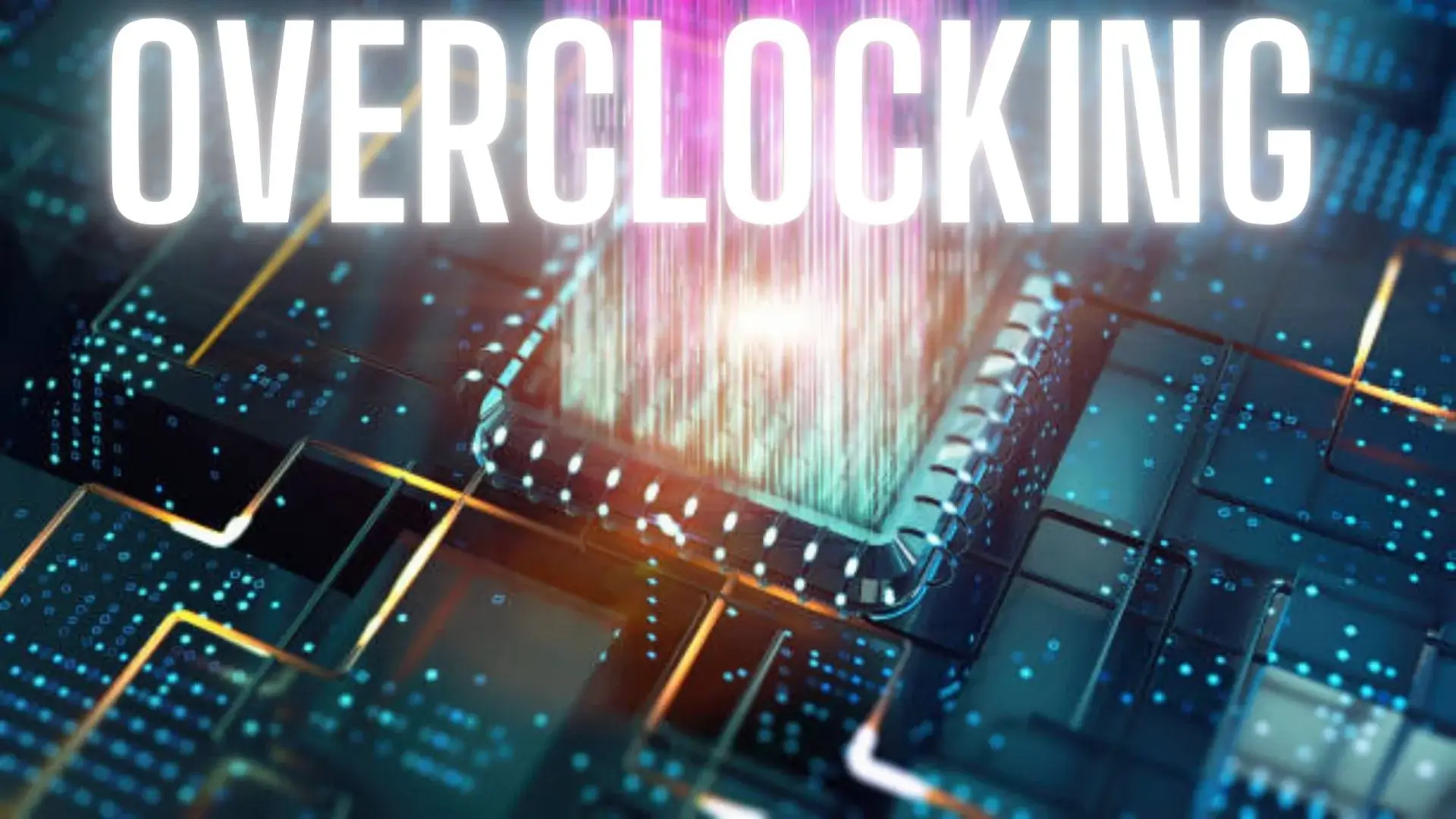
First off, you might be wondering, why overclocking? The explanation is simple - to grow your system’s speed. By overclocking, you are speeding up your computer, allowing it to process and handle more applications and data than originally designed for. This can especially aid gamers and professionals who mandate excessive processing power to run graphics-heavy applications or multiple programs simultaneously.
Running Faster Than The Recommended Manufacturer Setting
Overclocking involves running your hardware components at speeds higher than their stock settings. While this can sweeten performance in some cases, it also induces more heat and can potentially conduct to instability or damage if not managed properly.
Note: It’s momentous to note that overclocking is not always a guaranteed way to boost performance, and it can vary from system to system. Let me show you how!
Overclocking Is Not For Everyone
Overclocking is not suitable for all users, especially those who are not familiar with computer hardware or are not willing to accept the risks involved. Overclocking can potentially void warranties, reduce the lifespan of components, and even cause instability if not done correctly. It’s not an urgent practice for the average user or those with no technical expertise.
Main Points Of Overclocking
Overclocking is the process of tweaking your system’s hardware setup to run faster than the recommended manufacturer setting.
But the question is, Does FPS gain? Yes! After overclocking you can expect a 20% Increase in FPS.
Another popular question is, Is Overclocking for AMD processors & Motherboard allowed? Yes! Anyone can easily overclock their AMD Motherboard or processor as the AMD company has allowed it.
Another Trending question is, Is Overclocking for Intel processors & Motherboard allowed? Well it is only possible for Intel processors with ‘F’ in their names and Z-series motherboards (full-core frequency overclocking).
For Examples, i9-13900KF,i7-12700K or i5-13600K. But for the Z-series, the chip’s frequency changing is not allowed. Memory overclocking is limited to lower-tier Intel motherboards only.
Is Overclocking Safe
The fast answer is, " Yeah, overclocking is secure if done rightly. Nonetheless, it can also be risky if you do not heed the recommended procedures. Some risks include overheating, short-circuiting, and even damaging your hardware, so the best way to ensure your safety is to do your research, understand your system’s specifications, and obey the manufacturer’s instructions to the letter.
What PC Components Can You Overclock?
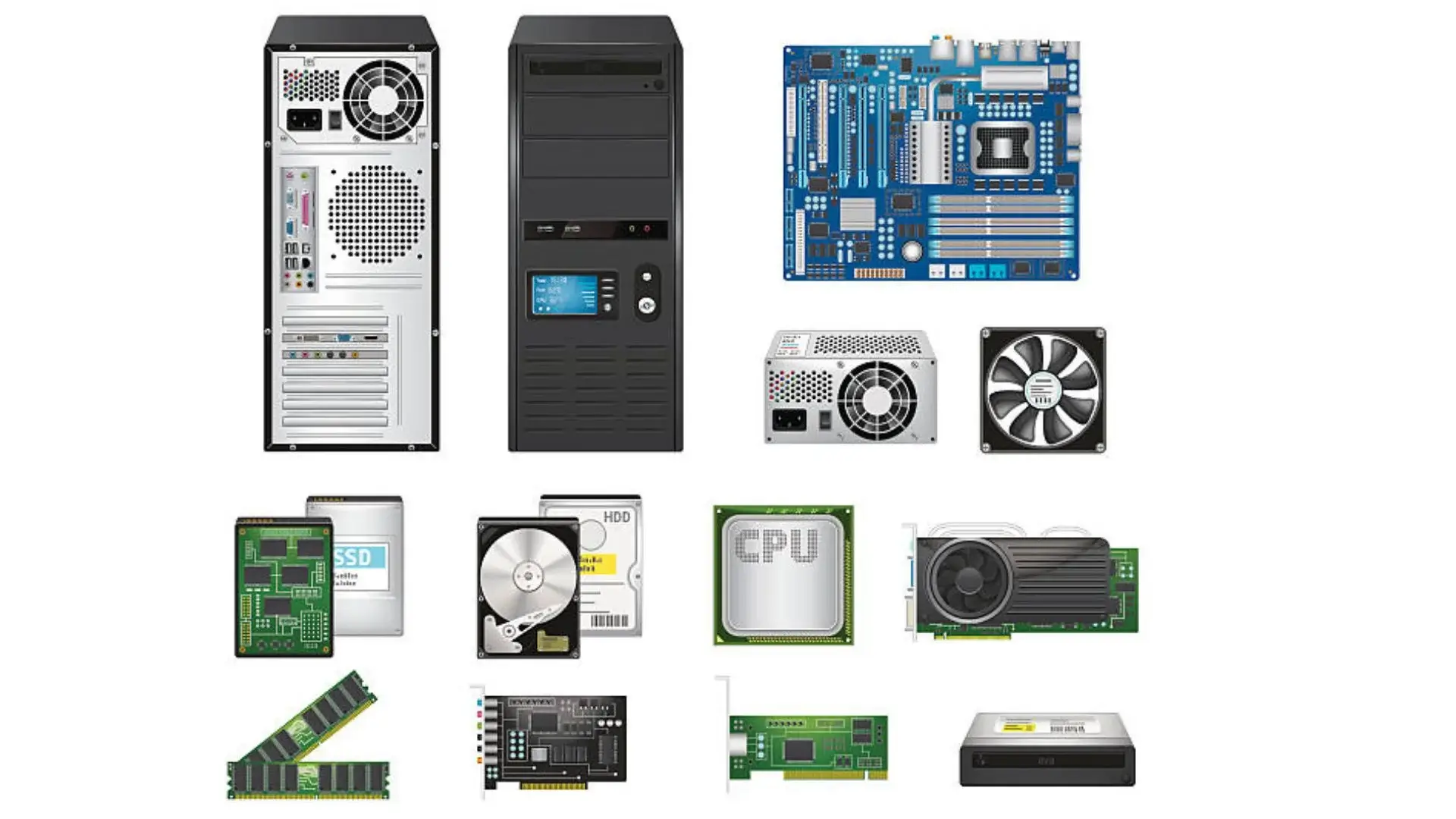
The common components that can be overclocked are your:
- Computer’s processor
- Graphics card
- Random Access Memory (RAM)
Processors
In the world of computers, it is widely understood that the processor is the brain behind every operation. And here’s a little secret: overclocking it can have a major effect on your system’s performance. Whether you have an AMD or Intel processor, you can safely explore the world of overclocking. However, it’s important to note that the process may differ depending on which brand you have (Intel, AMD)
Graphics Cards
If you overclock your existing GPU then you can get significant improvements in your gaming performance and can enjoy a low-lag-gaming-experience. However, not all graphics cards can be overclocked, so check beforehand. Also, be aware that the process of overclocking your graphics card may void any manufacturer warranties.
RAM
Overclocking your RAM is relatively straightforward and can improve system performance. As your RAM is responsible for managing the programs and processes running on your PC, overclocking it can help your system load applications, data, and files faster. So you can expect fast gaming after overclocking.
Can I Check If My System Is Overclocked?
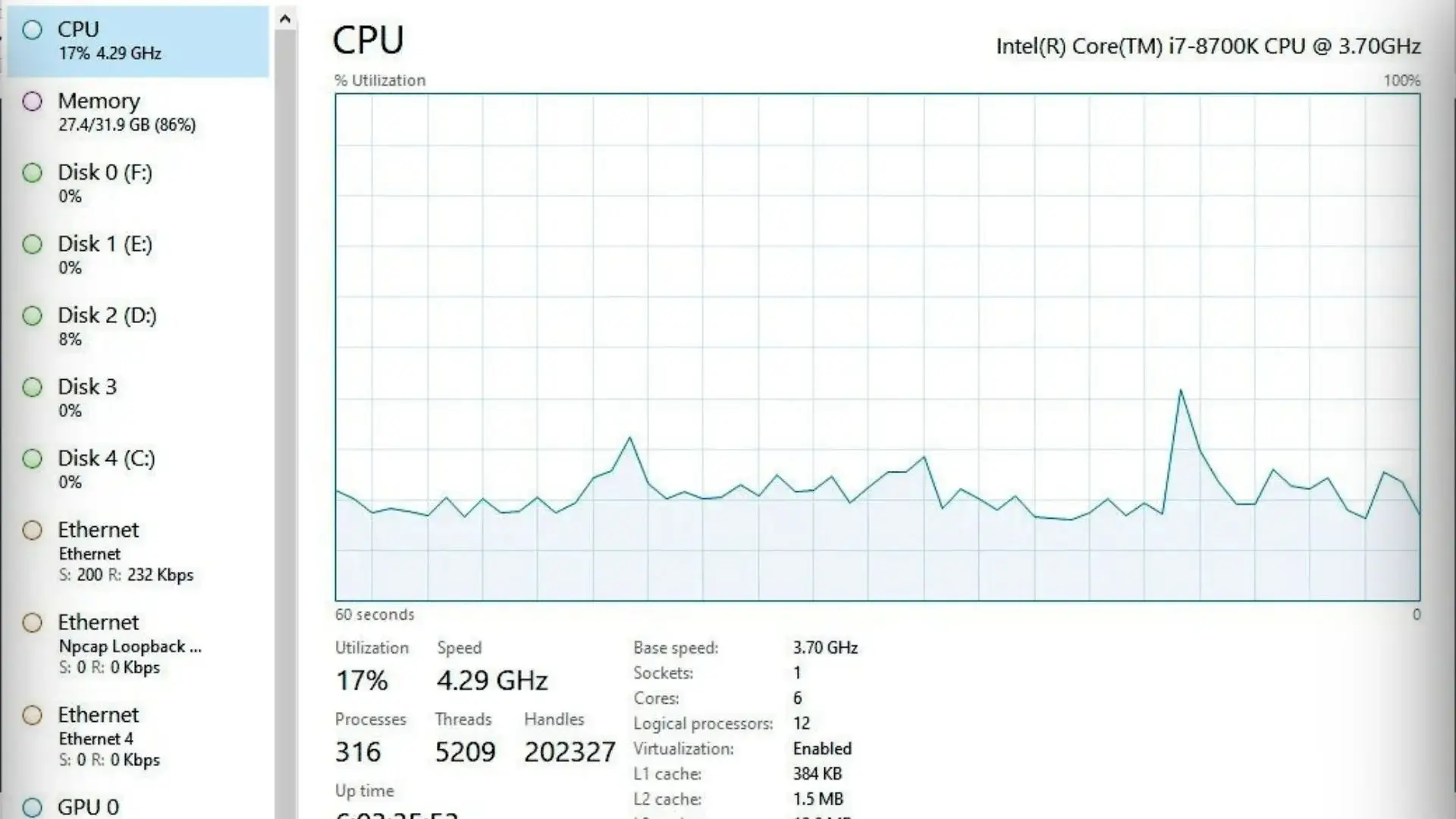
Yes, you can check. Before you begin overclocking your system, it’s essential to find out if any of your components are already overclocked. You can check if your system is overclocked using Task Manager, CPU-Z, GPU-Z, BIOS, or the Dxdiag Command.
You CAN Use Task Manager
Follow these steps, champ!
Pressing Ctrl+Shift+Esc will launch Windows Task Manager.
Then, navigate to the “Performance” tab and scrutinize for any components displaying higher-than-normal stats, indicating they may be overclocked.
You CAN Use CPU-Z Program
Another great tool is CPU-Z, which is a program that provides an in-depth look at your computer’s processor, memory, and motherboard.
By using the CPU-Z program, you can get information about your processor’s current clock speed, which you can compare to the manufacturer’s recommended clock speed.
You CAN Use GPU-Z Program
Another great tool is GPU-Z which is an excellent program that provides all the essential details regarding your graphics card, including its current clock speed. So by using it, you can easily check if your graphics card is overclocked.
You CAN Use BIOS
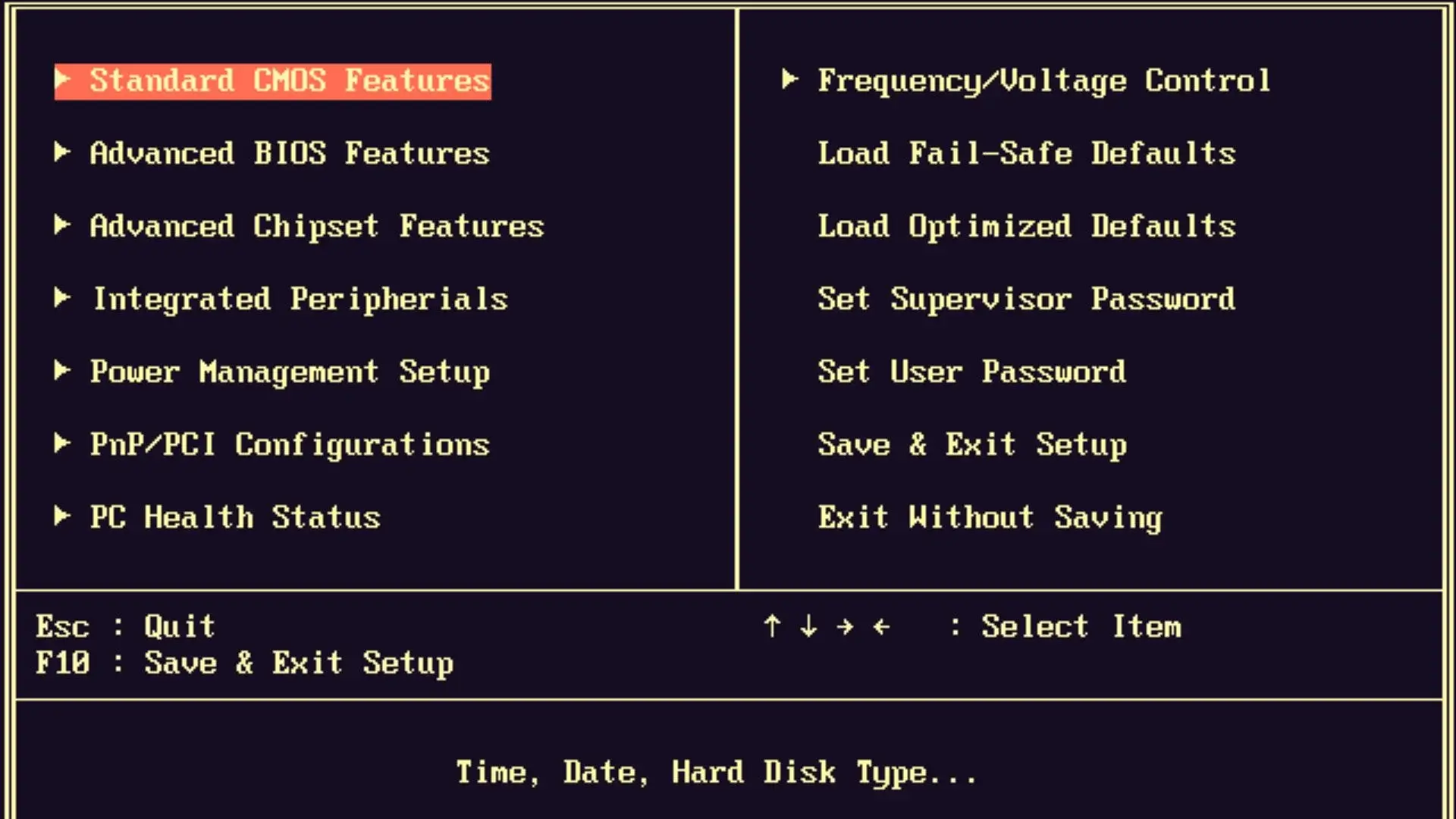
Most components are overclocked through your computer’s BIOS, you will need to restart your computer and access the BIOS when prompted (usually by pressing F2 or DEL). Once in the BIOS, look for and adjust the performance settings of your components.
You CAN Use Dxdiag Command
For this simple Launching the Run command and then typing “dxdiag” and then hit on the “OK” button will launch the DirectX Diagnostic Tool, so you can check your components information specifically looking for overclocking data.
Essential Precepts for Overclocking
Before delving into overclocking, there are some things you should comprehend. Rare things to consider are motherboard compatibility, CPU compatibility, CPU cooler considerations, and power supply necessities.
A. Motherboard Compatibility
Ensure that your motherboard agrees with overclocking. Some motherboards come with built-in safeness features to minimize the risks associated with overclocking.
B. CPU Compatibility
Not all processors are apt to be overclocked, so inspect the manufacturer’s site to see if your processor agrees with overclocking.
C. CPU Cooler Considerations
Overclocking likely leads to an upsurge in heat output, so you’ll need a more efficient cooling system. An immaculate cooling system will help maintain stable and invariant CPU performance.
D. Power Supply Requirements
Overclocking instructs more power than your system typically uses. Therefore, check the urged amounts of power the manufacturer and your system need to handle the auxiliary energy usage.
Disfavors of Overclocking
Although the usefulness of overclocking can be paramount to the daily operation of your systems, there are some probable disadvantages to consider.
Increased Power Usage
Overclocking mandates more power than normal usage. Although most power supplies can accommodate the added power use, ensure you inspect their recommended power usage.
Increased Heating
Overclocking begets more heat than a standard computer, so ensure you have adequate cooling capacity.
Warranty Void
Most warranties won’t obscure any damages caused by overclocking, which is something to consider.
Added Noise
Overclocking expands the fan speed, leading to more clangorous overall system noise.
How can I Overclock My CPU
Overclocking your CPU is a process that can be broken into steps, and the process is different for AMD and Intel CPUs.
A. For AMD CPUs
First, locate the AMD OverDrive utility and install the program. After installation, initiate the application and adhere to the prompts according to AMD’s recommendations.
B. For Intel CPUs
Go to the BIOS and change the multiplier that determines how fast the CPU runs. The multiplier will ensure you maximize the potential of your processor without overstepping the recommended parameters.
How Can I Overclock My Graphics Card?
Overclocking your graphics card involves downloading and installing software like MSI Afterburner, which will overclock your graphics card’s clock speed manually.
How Can I Overclock My RAM
You can overclock your RAM by heading into your system’s BIOS and increasing its clock speed.
Closing Remarks on Overclocking
Overclocking is an excellent way to improve your system’s performance without having to purchase a new one. However, it’s crucial that you’re aware of the pros and cons of the process before you attempt it. As long as you’re cognizant of the risks and have the right hardware, you’ll be on your way to a faster and more efficient computer.
Frequently Asked Questions
Does intel have an overclocking tool?
Yes, Intel provides an overclocking tool known as “Intel Extreme Tuning Utility” (XTU) that allows users to overclock their Intel CPUs and related components. This tool provides a user-friendly interface to adjust various performance parameters such as CPU multiplier, voltage, and memory settings to achieve higher clock speeds and performance.
However, the availability and features of overclocking tools may vary depending on the specific Intel CPU and motherboard model you have. Always ensure that your hardware supports overclocking and exercise caution when using overclocking tools to avoid damaging your components.
How do I tell if my CPU is overclocked?
Check CPU Specifications: To find your CPU model and base clock frequency, check your computer’s BIOS/UEFI settings or refer to your CPU’s documentation or online resources.
Monitor CPU Clock Speed: Use monitoring tools like CPU-Z, HWMonitor, or Windows Task Manager to check your CPU’s clock speed while running demanding tasks. Compare it to the base clock speed for performance analysis.
Use Overclocking Software: If your CPU is overclocked, check the overclocking software used, like MSI Afterburner, Intel XTU (for Intel CPUs), or AMD Ryzen Master (for AMD CPUs) for clock speed and settings information.
Inspect BIOS/UEFI Settings: Restart and access BIOS/UEFI settings (e.g., Del, F2). Check CPU settings, especially overclocking options. Consult your motherboard’s manual if unsure.
Consult System Documentation: Check your computer’s documentation, including the motherboard manual, for default overclocking settings or instructions on enabling/disabling overclocking features.
Online Resources: Search online forums or CPU-specific communities to find information about your CPU model being overclocked by the manufacturer or if others have similar experiences.
What is "bottlenecking," and how can overclocking affect it?
Bottlenecking" refers to a situation in a computer system where one component, such as the CPU or GPU, limits the overall performance of the system because it can’t keep up with the capabilities of another component.
Overclocking can affect bottlenecking by potentially increasing the performance of a specific component, like the CPU or GPU, which may alleviate or exacerbate a bottleneck depending on the balance between the components.
If, for example, you overclock the CPU, but the GPU is still the limiting factor in a gaming setup, overclocking the CPU might not significantly improve overall performance. Balancing the overclocking of different components is important to optimize system performance and avoid bottlenecks.
